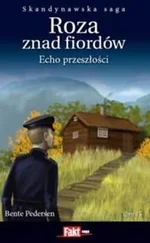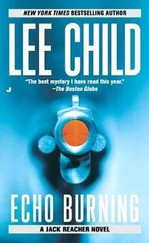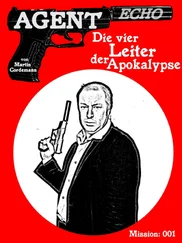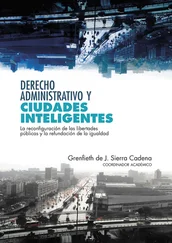She walked the short distance from the museum to the Hesketh Arms. She sat at a table and used her mobile phone to get the number for the police at Southport from directory enquiries. She asked if there was an officer designated to handle cold crimes and closed her eyes and prayed that there was.
‘How cold?’ said a jocular voice.
‘Eighty years.’
There was a pause. ‘Goodness, that is chilly. That’s not so much felony, madam, as history.’
‘It’s murder, is what it is,’ Suzanne said. Her tone must have conveyed some of the seriousness and anger she was feeling.
‘Wait a moment,’ the voice said. ‘I’ll patch you through to Mr Hodge.’
She had been hoping for a Wright or a Rimmer or a Halsall. She knew the names from her genealogy work on the northern comic. She had said a short prayer to herself in the hope of a really local man to listen to what she had to say. Hodge was about as good as she could have wished for, though. And now she silently thanked God for that. There were Hodges from around here in the Domesday Book. They had cultivated the land at Hundred End and Ormskirk a thousand years ago. The word itself was the Viking word for farmer. It helped to know the land, Suzanne thought, if you were going to be excavating it. Her appointment with Mr Hodge of the Southport Division of the Merseyside Cold Crimes Squad was made for nine thirty the following morning.
She went to the library and used her laptop in the reference section. The Paddy McAloon ballad ‘When Love Breaks Down’ had entered the chart in September of 1985. That was when it was current, when it was getting its airplay, when it would likely enter whatever passed for the conscious mind of Harry Spalding. She went over and asked to see the microfiche files. It seemed a remote time, 1985, when she saw the page layouts and the photographs. She found what she was looking for in an issue of the Southport Visitor from October of that year.
Two friends had disappeared fishing off Formby Point. They were assumed drowned, but their bodies had not washed up. They were both seventeen. They had been at school together. Their fishing hobby had progressed from freshwater brooks and ponds and the Leeds and Liverpool Canal to the bigger catches to be had sea fishing from the end of Southport Pier. This was only the second time their parents had permitted them to fish by night from a boat. The weather had been calm. The forecast had been clear. And they and their dinghy had vanished. The families had provided the paper with portrait shots. Fashionable lads, in their quiffs and overcoats, they looked in these photographs a little like rock stars of the period themselves. They did not look like Paddy McAloon. They had that look of the period more defined by bands like Echo and the Bunnymen, or The Smiths. Suzanne did not think they had drowned. But she thought she knew what had been playing on their radio or tape machine when the prow of the Dark Echo loomed in the night over their little craft.
‘How did the picture get torn?’ Hodge asked. He was scrutinising Jane’s aerial photograph, recovered from the strongbox left at the museum. He was doing so in bifocals, seated at his desk, the picture tilted into the bright sunshine coming in through his window. Suzanne guessed he was in his mid-fifties. He was unremarkable-looking. His hair was turning from blond to grey and was close-cropped and thick. There were lines around his blue eyes. His worsted suit seemed a bit warm for June and, like his plaid flannel shirt, looked straight off a rack at Marks & Spencer. His rank had been Detective Inspector at the time of his retirement. Perhaps he was bored in retirement. Perhaps his pension had not stretched as far as it needed to. It could just be that he needed something to keep him from the temptation of the lounge bar of his local pub. But he did not look like a drinker. He looked alert and competent and, though he was polite, seemed rather distrustful. She could hardly blame him, in the circumstances, for that.
Suzanne had given Mr Hodge some of the background. She had told him about the missing girls. She had told him about Jane’s suspicion of Harry Spalding. She had told him about the Dublin encounter between Spalding and Jane and how the picture came to be taken. Now she told him about the meeting in Liverpool between Jane and DCI Bell.
Hodge nodded, without comment. He had not commented so far on anything that Suzanne had said. He had restricted himself to a couple of questions just to establish chronology and fact. Now, he did comment.
‘I remember my granddad telling me something about these disappearances.’
‘Was he a police officer?’
‘No. He wasn’t. He was head barman at the Palace Hotel. He knew the chambermaid.’ Hodge put the separate pieces of Jane’s photograph down on his desk. ‘He knew Helen Sykes and her circle. Miss Sykes was a lavish tipper. My grandfather remembered that. Could I get you some tea or coffee, miss? Have you been offered anything?’
‘Please, call me Suzanne. Coffee would be great.’ And a cigarette would be even greater. But that comfort would have to be forgone.
‘I have to go to our computer room for a few minutes,’ Hodge said. He closed the notebook he had been filling during Suzanne’s monologue and slipped it into the pocket of his jacket. ‘You are welcome to drink your coffee in our canteen. Or I can have it brought to you in the yard to the rear of the station where you are welcome to smoke.’
‘The yard, please,’ she said.
Hodge smiled at her. The smile seemed warm enough but the eyes above it stayed alert. Suzanne did not think he was doing this to prevent himself from downing too much beer or to pay off stubborn credit card bills. They had brought him back only because he was so bloody good at it.
It was thirty-five minutes before he returned to his office and he did so with a sheaf of documents under his arm. ‘Much easier, now everything is computerised,’ he said. She nodded. Without computers, her own job would be near impossible. Not that she really had a job any more. With a shock, she realised that the struggle to deliver Martin from the spectre of Harry Spalding had taken over her entire life.
He sat down and gestured for her to sit, then he lowered the open blind so that the light was not dazzling through his window. It was still bright in his office through the chinks of the blind. He tapped his fingers in a tattoo on his desk and sucked his teeth. Then he sifted amid the pile of printouts his computer time had delivered him. ‘Do you believe in reincarnation, Suzanne?’
‘No.’
There was a silence.
‘Do you?’
‘I didn’t,’ he said. He slid a black and white picture of a woman seated at a café table across the desk. Suzanne looked at it and coloured. It was like seeing a snapshot she hadn’t known existed of herself.
‘Surveillance picture. Taken by the Special Branch on Lord Street in 1925. Miss Boyte was a known associate in Dublin of a bomb-maker by the name of Devlin. It isn’t surprising that Bell gave her short shrift. He wasn’t an Orangeman, either, by the way. He was a Freemason. That’s probably neither here nor there. Lots of police officers were and are Freemasons. What is more significant is that his brother was killed in Tipperary serving with the Black and Tans. Corporal David Bell was blown to pieces in a Republican ambush.’
Suzanne didn’t say anything.
‘Not everyone was so enamoured of Michael Collins as Jane Boyte so clearly was.’
‘So she was kept under supervision.’
‘There’s quite a comprehensive file on her. She was pulled in from time to time. Did you know that she gave birth to a daughter?’
‘I suspected it. She wrote something in her journal about children and one’s feelings towards them. It struck me at the time as something only a mother would have written, an insight only a mother would have had. Is her daughter’s married name Daunt?’
Читать дальше












